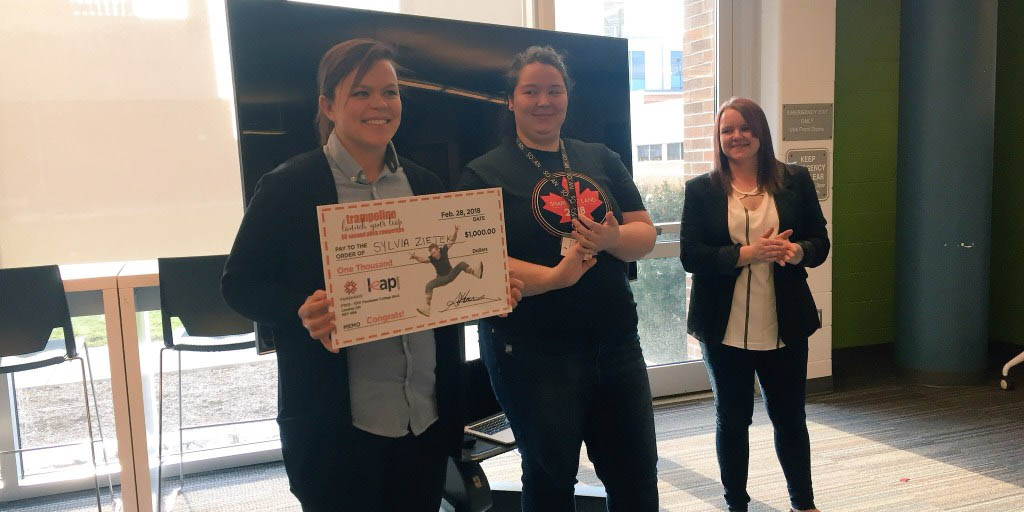Fanshawe helping student entrepreneurs reach their goals
 CREDIT: LEAPJUNCTION.CA
CREDIT: LEAPJUNCTION.CAFanshawe's LEAP Junction helped students get one step closer to their entrepreneurial dreams with the annual Trampoline 60 Second Pitch Competition
Fanshawe held its third annual Trampoline 60 second Pitch Competition to help student entrepreneurs get one step closer to their business dreams.
Two weeks prior to the Trampoline 60 Second Pitch Competition, Fanshawe brought in Anna Foat, the 60 Second Pitch Expert.
Foat's workshop covered the basic dos and don'ts of a pitch to some students from the Lawrence Kinlin School of Business Entrepreneurship course and approximately 30 of Leap Junction's clients. The workshop lasted an hour and Foat taught the essentials of a 60 second pitch as well as how to hook in the audience and to spark their interests.
This helped students prepare for the Trampoline 60 Second Pitch Competition and give them tools to successfully provide a pitch.
The Trampoline 60 Second Pitch Competition began as a way to prepare students for other pitch competitions in the future, such as Seed Your Start Up, a pitch competition involving Fanshawe and Western students.
Another benefit to a 60 second pitch competition is that you really have to boil down what your business is in a very short period of time.
“You really have to think about what your value proposition is and who your customer is,” Fanshawe's supervisor, entrepreneurial services, at the employment and student entrepreneurial services, Annette Markvoort said.
“When you're meeting someone for the first time you don't have five minutes to go on and on about your business, you probably have 60 seconds to tell people who you are and what you're doing,” Markvoot said. “It's a good idea to train students to think about what those essential bits and pieces of information are that they need to get out.”
On Feb. 28, Leap Junction held the Trampoline 60 Second Pitch Competition. Competitors had 60 seconds to talk about the idea they were pitching, followed by a small question period afterwards from the three judges.
There were 12 to 14 students who pitched their business proposals. The competition was stiff.
“There was a wide gamut, we had a couple of people who completely froze and that's completely normal, that happens and its sometimes a good thing to go through that, so that you recognize that you have to be really prepared and you have to understand what it's like to be in front of people to do a pitch,” Markvoort said.
Ideas that were pitched ranged from food to fun, showing a look into people's passions and opening up about what drives each individual towards success.
The competition is really about practicing and owning your skills, practicing what you want to say and how you're going to present yourself and your pitch. It was evident that the students that practiced, got everything out that they needed to say and were the most natural were the winners.
What was different this year compared to others, was that LEAP Junction gave out three prizes instead of just a first place prize due to how close the top three contestants scored. Leap Junction wanted to make sure that the second and third place winners were honoured as well.
First place winner, Sylvia Zietek, was awarded $1000 to start up her business, The Pierogi Queen. Lliam Buckley, the second place winner, was given $500 for Pocket Records and the third place winner, Tamara Visser, of Boxford, brought home $250.














